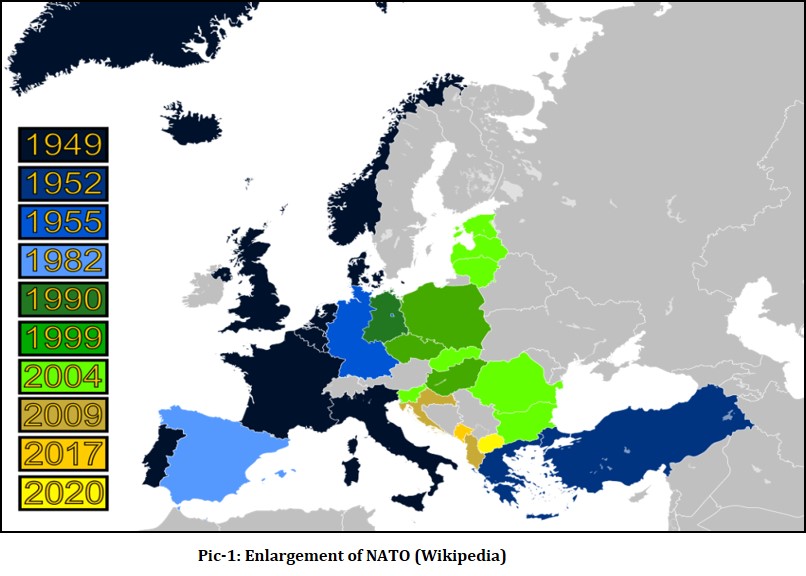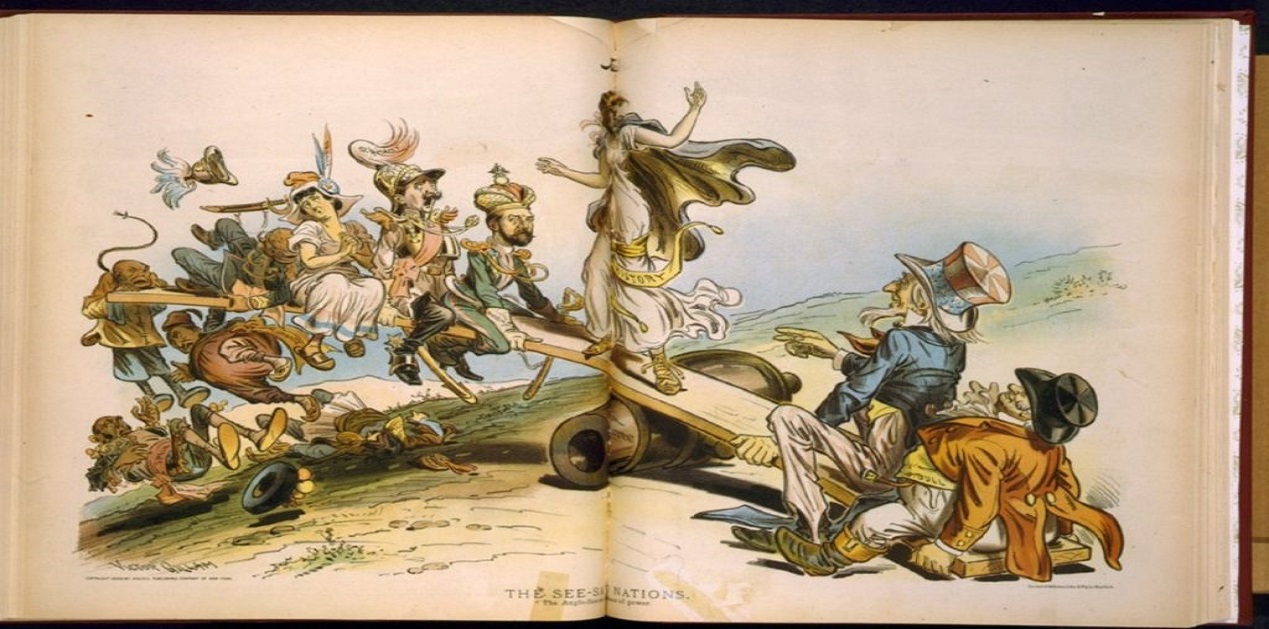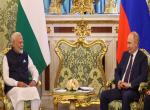Prologue
From Congress of Vienna to the beginning of the First World War; Europe survived for nearly a century without a major war like the one it saw ended with the Battle of Waterloo or the one it would see starting in 1914. During this period; both the balance of power and the interests among the great powers were preserved; rivalries were controlled both in Europe and beyond. Great powers definitely tried to use the situation in their own favour; coerced and sometimes collided with each other but at the end of the day, they had been able to maintain peace no matter how fragile it is.
In this brief paper; we shall analyze how today’s great powers unlike their predecessors in 19th century have failed in their role to maintain balance in power in the pursuit for their own hegemony in the context of current Russia’s war on Ukraine.
Balance of Power after Napoleonic Wars
Former US Secretary of State and National Security Advisor; Henry Kissinger coined the concept of “legitimacy” in his doctoral dissertation[1]. He pointed out that the legitimacy is like an agreement if accepted by all the major powers and becomes an international order but the order is threatened only when the agreement is violated by one or more of the major powers.
The legitimacy of “ancien régime” was threatened by the French Revolution in 1789. The ensuing French Revolutionary Wars from 1792 and its migration to Napoleonic Wars from 1802 ended exactly nine days short from 22 years with the Treaty of Fontainebleau in 1814 and abdication of Napoleon to Elba.
The great powers of Britain, Prussia, Austria and Russia met in September; 1814 under the Austrian chairmanship in Congress of Vienna alongside other European Royals and Diplomats. The main purpose of the Congress was not to create peace but to ensure the peace in such a balanced way that no state can singularly threaten the others. The key architects of this design were British Foreign Secretary; Viscount Castlereagh and Austrian Foreign Minister Prince Metternich. Although both had different perspectives but the end result converged. For Castlereagh; British interest is best secured when Continental Europe is dominated by no single power[2] while for Metternich; emergence of another Napoleon or occurrence of another revolution was real possibility for a state like Austria, situated at the heart of Europe. In his first diplomatic despatch as an envoy to Saxony; he argued for a Power Equilibrium in Europe where a strong Central Europe is to be backed by England which is in interest of a power exclusively commercial and of a power entirely continental that could never lead to rivalry[3]. This has become the cornerstone of Metternich’s Foreign Policy over the years.
The most important achievement of the Congress of Vienna was the mechanism of balance among the Great Powers through negotiations that would settle disputes between nation states without provoking war. The Final Act of the Congress survived even when Britain left it in 1822 to pursue its policy later to be known as “splendid isolation”[4] or under Protocol of St Petersburg in 1826[5]; where it joined hands with Russia in support of Greek War of Independence ignoring concerns of two other powers of Austria and Prussia.
Balance of Power after Crimean War
Tsar Nicholas I of Russia threatened the legitimate international order with his unilateral action against the Ottomans in 1853 that started the Crimean War. Both Britain and France opposed the Russian belligerence. London was afraid of increase in Russian influence in Balkan and Mediterranean while the French Ruler Napoleon III found it as an opportunity to retrieve the lost glory of his illustrious uncle; Napoleon Bonaparte. Other Great Powers like Prussia and Austria remained silent on Anglo-French action against Russia. The use of force to contain a defiant Russia in Crimean War is the same concept of defending Kissinger’s “legitimacy” or the existing order as it happened against Napoleonic France through multiple coalitions of war so as the Anglo French Alliance against Tsar Nicholas’s Russia.
Decades later; it was German Chancellor Otto von Bismarck who felt the necessity of balance of power in Europe much like Metternich because of the French Revanchism upon the latter’s defeat in Franco-Prussian war in 1870. Bismarck allied with both Austria and Russia to form League of Three Emperors[6] in 1873 aimed to isolate France so that no alliance in continental Europe could be formed by France against Germany including any of the other Great Powers. Bismarck’s indifference to acquire overseas colonies helped him getting Britain’s passive support to Germany[7] since Britain viewed Berlin as stabilizing force in Europe against both France and Russia. However with his fall from power in 1890; his policy of balancing hard powers was promptly discarded by Kaiser Wilhelm II. Taking the opportunity; France ended its isolation by luring Russia into an Anti German Alliance in 1894[8]. Anxiously watching German Naval Build-up to match Royal Navy on high seas; Britain too joined France to form Entente Cordiale in 1904 [9] summarily aimed at Germany that latter included Russia and formed Triple Entente[10]. The balance of power that was holding peace in Europe since 1814 was dead by the end of first decade of 20th century resulted in the First World War (WW-I).
Balance of Power after the Great Wars
In his famous speech “Peace without victories”; former US President Woodrow Wilson said “Only a peace between equals can last”[11]. His wisdom was very similar to the balancing approach of Congress of Vienna. But in 1919 when the Treaty of Versailles was framed; Victors of the WW-I missed this basic lesson from the annals of history and ignore the sane advice of Woodrow Wilson. They humiliated Germany, dismembered it, imposed heavy reparation and tried limiting its armed forces and war fighting capacity. Then British Staff Officer and future Field Marshall Earl Wavell precisely said “After the war to end war; they seem to have been pretty successful in Paris at making a peace to end peace”[12]. This “Carthaginian Peace”[13]; as rightly termed by economist John Maynard Keynes survived only 20 years and then Second World War (WW-II) started.
But unlike the “peacemakers” of Post WW-I; at the end of WW-II, this time the statesmen were cautious enough not to repeat the same mistakes by punishing any particular country like what happened in 1919. Therefore they replaced Morgenthau Plan[14] with Marshall Plan[15] in order to stabilize war torn Western Europe. Victors of WW-II envisaged that a stable Germany was too important to resist communism in continental Europe than to punish it for a war that ended already. Great Powers created a mechanism for themselves also to balance their own hard power. United Nations Security Council was constructed in 1945 with each of the great powers having the right of veto to discard the action of the others.
But the most important component that provided necessary traction to the concept of balance of power was the availability of the Nuclear Weapons with all the great powers which ensures equal capacity to destroy each other something that we come to know as Mutual Assured Destruction[16]. Therefore unable to fight it each other; they started using proxies to fight their war. The Cold War between two rival camps one led by the US and the other by the USSR often collided yet been able to maintain a general peace without a major war.
Balance of Power after the Cold War – the Ukraine Enigma
With the collapse of the Soviet Union; Russia emerged from that ruins as the prime inheritor of the historical burden of the Imperial Russia and the Soviet legacy. Henry Kissinger rightly pointed out; “The problem is Russia is a country that has lost 300 years of its history, in terms of most of what was part of the Russian Empire in Europe, towards Europe, since Peter the Great, has been the territory that is no longer under Russian rule”[17][18].
Yet overcoming those historical hubris; Russian President Putin expressed to BBC journalist (Late) David Frost his unwillingness to consider NATO as enemy any more. He went a step further to consider even joining NATO as its Former General Secretary; George Robertson confirmed later[19].
Unfortunately, what could have been a genuine settlement of continental Europe towards peace and a true balance of power; Putin’s gestures went to dust. Instead of integrating Russia into the liberal world order to achieve power equilibrium; NATO has become more active with rapid expansion inducting new states, mostly the Eastern European countries including former Soviet Republics. 14 states that joined NATO till 2020 bring the Western Military Alliance to the Gates of Russia.

But what has been most critical for the Russian psyche and Russian Security Paradigm is Ukraine. Former US National Security Advisor Zbigniew Brzeziński in 1994 rightly pointed out “It cannot be stressed enough that without Ukraine, Russia ceases to be an empire, but with Ukraine suborned and then subordinated, Russia automatically becomes an empire”[20]. Whether agriculture or industries or military infrastructures or geopolitical significance; Ukraine’s importance from Russian perspectives remains highest imperative. The separation of Ukraine was the coup de grâce for the collapsing USSR so as for the emerging Russian Federation[21]. The then US Ambassador to USSR and then to Russia; Robert Strauss also advised Washington “the most revolutionary event of 1991 for Russia may not be the collapse of Communism, but the loss of something Russians of all political stripes think of as part of their own body politic, and near to the heart at that: Ukraine”[22]. Something similar was communicated by the current CIA Director; WJ Burns, then US Ambassador to Russia. In his email to Condoleezza Rice in 2008; he said “Ukrainian entry into NATO is the brightest of all redlines for the Russian elite … I have yet to find anyone who views Ukraine in NATO as anything other than a direct challenge to Russian interests"[23]. Putin himself warned NATO in its 2008 Summit that any step to bring Ukraine into the alliance would be a hostile act against Russia[23].
Yet Ukraine keeps circulating as Russian counter balance in continental Europe where US led Western Alliance tends to believe that a capable Ukraine inside NATO can effectively nullify the conventional advantage of Russia towards East and Central Europe. Such thoughts made Ukraine a great game chessboard. If the 2004 Orange Revolution is the beginning of that game by the West; then winning of Victor Yanukovych as President of Ukraine was the second round that Putin won. Yanukovych vowed to keep Ukraine out of any military alliance which may threaten the Russian Security Paradigm[24]. But ouster of Yanukovych in 2014 Revolution of Dignity rang the alarm bell in Moscow which responded by occupying Crimea and supporting the secessionist movement in Russian speaking Donbas region. As a response; Ukraine moved closer to the West and amended its constitution in 2019 to join NATO and European Union[25]. And the final kettledrum of the Russo-Ukrainian conflict was sounded when NATO Secretary General Jens Stoltenberg commented in 2021 NATO Summit; "They cannot veto the decisions of their neighbors. We will not return to the era of spheres of interest, when large countries decide what to do with smaller ones"[26].
Conclusion
In his 2019 memoir; current CIA Director WJ Burns quoted Putin saying in 2008, “Doesn’t your government know that Ukraine is unstable and immature politically, and NATO is a very divisive issue there? Don’t you know that Ukraine is not even a real country? Part of it is really East European, and part is really Russian. This would be another mistake in American diplomacy.” [27] Putin only reaffirmed his mind once more on February 22nd 2022.
As Kissinger wrote in his book; “A legitimate order does not make conflicts impossible, but it limits their scope”.[28] The history of Europe for last 200 years indicates that whenever the legitimacy of balance of power was challenged; conflicts began. When the legitimacy of bi-polar world collapsed with the fall of Soviet Union; a new collective world order could have saved the world from this disastrous Russo-Ukrainian war. Instead the imperial sense of security concept in Russia led it to the aggression against a sovereign state whereas the diplomatic manoeuver by the West to create Ukraine as a frontline state to balance Europe against Russia has played its role for this Russian war against Ukraine. Instead of integrating Russia into Continental Europe to create a new legitimate order Post Collapse of Soviet Union; the West has decided to contain Russia for the Soviet defeat in Cold War much like what the Victors of WW-I did with Germany with the Treaty of Versailles. We saw what happened then and we are seeing what is happening now.
More than 200 years ago the diplomats in Congress of Vienna proved that instead of dividing the continental Europe into different power groups to compete and counter each other; it is better to include them together to address their concerns mutually so that balance of power can be achieved collectively. Had it been adhered by all the great powers today; this unnecessary war could have been avoided long back; much before the Yanukovych’s ouster and Crimean occupation in 2014.
Endnotes:
[1]Henry Kissinger (1957); A World Restored: Metternich, Castlereagh and the Problems of Peace, 1812 - 1822. Page 14-15
[2]Ibid, Page 242
[3]Ibid, Page 33
[4]Harold Temperley (1925); The Foreign Policy of Canning, 1822-1827: England, the Neo-Holy Alliance, and the New World.
[5]David Brewer (2011); The Greek War of Independence: The Struggle for Freedom from Ottoman Oppression
[6]Karina Urbach, Bismarck's Favourite Englishman: Lord Odo Russell's Mission to Berlin (1999)
[7]Stone, James (2015). "Bismarck and the Great Game: Germany and Anglo-Russian Rivalry in Central Asia, 1871–1890". Central European History. Vol 48 No 2 Page 151–175 https://www.jstor.org/stable/43965144
[8]Norman Rich, Great power diplomacy, 1814-1914. (1992) 216-62.
[9]Andrew, Christopher M. Théophile Delcassé and the making of the Entente Cordiale: a reappraisal of French foreign policy 1898-1905 (Macmillan, 1968)
[10]Christopher Clark, The Sleepwalkers: How Europe went to war in 1914 (2012), pp. 102–103
[11]President Woodrow Wilson Speech on “Peace without victories” on January 22; 1917
http://web.mit.edu/21h.102/www/Wilson%20Peace%20Without%20Victory.htm
[12]Pagden Anthony (2008); Worlds at War: The 2,500-year Struggle between East and West. Oxford University Press US. Page 407 https://books.google.co.in/books?id=m80kwkt8YW4C&pg=PA407&redir_esc=y#v=onepage&q&f=false
[13]John Maynard Keynes, The Economic Consequences Of The Peace (1920), Page 36
https://archive.org/details/in.ernet.dli.2015.135642/page/n7/mode/2up
[14] “Suggested Post-Surrender Program for Germany” by Henry Morgenthau (1944); http://docs.fdrlibrary.marist.edu/PSF/BOX31/t297a01.html
[15]Marshall Plan https://www.archives.gov/exhibits/featured-documents/marshall-plan
[16]Daniel., Deudney (1983). Whole earth security : a geopolitics of peace. Washington: Worldwatch Institute. p. 80
[17]Kissinger pointed out that Russia loses its history of 300 years https://history.state.gov/conferences/2007-detente/roundtable2
[18]Kissinger pointed out that Russia loses its history of 300 years https://www.nytimes.com/2007/06/18/world/americas/18iht-web-rose.html
[19]Former NATO Secretary General George Robertson said on Putin willing to join NATO
https://www.theguardian.com/world/2021/nov/04/ex-nato-head-says-putin-wanted-to-join-alliance-early-on-in-his-rule
[20]Former US National Security Advisor Zbigniew Brzeziński on Russian affairs in Ukraine https://www.foreignaffairs.com/articles/russian-federation/1994-03-01/premature-partnership?_gl=1*76audy*_ga*MTU2MDAyNjIyMS4xNjY1NTYwMTE4*_ga_24W5E70YKH*MTY2NjYwNDA2Mi41LjAuMTY2NjYwNDA2Mi4wLjAuMA..
[21]The separation of Ukraine from Russia is the coup de grâce https://www.cfr.org/backgrounder/ukraine-conflict-crossroads-europe-and-russia
[22]US Ambassador Robert Strauss’s advisory to Washington https://www.ft.com/content/742f15fc-675a-4622-b022-cbec444651cf
[23]William J Burns (2019); The Back Channel: A Memoir of American Diplomacy and the Case for Its Renewal. Random House US. Page 226
[24]Yanukovych keeps Ukraine out of NATO https://www.kyivpost.com/article/content/ukraine-politics/ukraine-makes-it-official-nation-will-abandon-plan-67901.html
[25]Ukraine amended the Constitution on the course of accession to the EU and NATO has entered into force | European integration portal https://eu-ua.kmu.gov.ua/novyny/zakon-pro-zminy-do-konstytuciyi-shchodo-kursu-na-vstup-v-yes-i-nato-nabuv-chynnosti
[26]NATO General Secretary Jens Stoltenberg’s comment on accommodating Ukraine in NATO https://www.eurointegration.com.ua/news/2021/06/14/7124429/
[27]William J Burns (2019); The Back Channel: A Memoir of American Diplomacy and the Case for Its Renewal. Random House US. Page 231
[28]Henry Kissinger (1957); A World Restored: Metternich, Castlereagh and the Problems of Peace, 1812 - 1822. Page 15
(The paper is the author’s individual scholastic articulation. The author certifies that the article/paper is original in content, unpublished and it has not been submitted for publication/web upload elsewhere, and that the facts and figures quoted are duly referenced, as needed, and are believed to be correct). (The paper does not necessarily represent the organisational stance... More >>
Image Source: https://warontherocks.com/wp-content/uploads/2022/05/1248px-The_see-saw_nations-The_Anglo-Saxons_balance_of_power_-_Victor_Gillam._LCCN955230681-1024x684.jpg










An excellent article. The author has beautifully linked the past with the present - Ukraine War. Very well articulated. My compliments to the author.
Post new comment